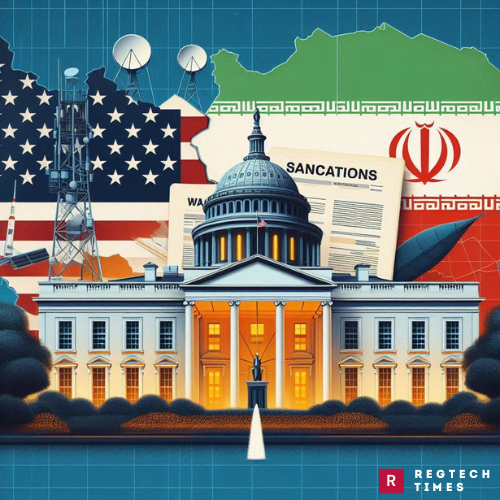In a move that has sparked significant debate, the Biden-Harris administration has recently renewed a sanctions waiver for Iran’s state-controlled broadcaster, the Islamic Republic of Iran Broadcasting (IRIB). This decision, detailed in a non-public notification to Congress on August 9, 2024, permits the IRIB to engage in financial transactions essential for its operations, despite its role in disseminating anti-Israel and anti-Semitic propaganda.
The IRIB, which oversees a broad range of media outlets, including television, radio, and news services, has faced criticism for broadcasting content that promotes radical and violent ideologies. Since Hamas’s unprecedented attack on Israel on October 7, 2023, the IRIB has been accused of amplifying anti-Israel sentiments and supporting terrorism against American interests in the Middle East.
The Sanctions Waiver Controversy
This sanctions waiver is not unprecedented; previous administrations have also granted similar waivers. The practice began under the Obama administration in 2014. However, the timing of the Biden administration’s latest waiver is particularly controversial. Critics argue that it comes during a period of heightened Iranian aggression, including attacks on U.S. military bases and an escalation in regional tensions involving Iran-backed proxies.
Criticism from Lawmakers
Senator Ted Cruz (R-Texas) has been vocal in his criticism of the sanctions waiver, describing it as an example of the administration’s “appeasement” towards Tehran. Cruz and other critics claim that this decision undermines U.S. national security and emboldens the Iranian regime at a time when Iran’s actions are increasingly threatening American interests and allies. Cruz highlighted that over $100 billion in funds have flowed to Iran under the current administration, which he argues has been used for nuclear development, terrorism, and propaganda.
Iran Claims to Have Identified Mossad Spies in 28 Countries Amid Rising Tensions
State Department’s Defense
The State Department defends the sanctions waiver as a strategic necessity. Secretary of State Antony Blinken personally signed off on the decision, asserting that maintaining the waiver is crucial for U.S. national security interests. A State Department spokesman reiterated that while the waiver permits certain financial transactions related to satellite and communication services, the IRIB and its senior leadership remain subject to U.S. sanctions for their roles in censorship and human rights abuses.
Implications of the Sanctions Waiver
This sanctions waiver allows transactions necessary for establishing and maintaining satellite and ground connectivity with the IRIB, including infrastructure and support services. The goal is to ensure that U.S. interests are not directly undermined while permitting the IRIB to continue its operations under specific restrictions.
Expert Opinions on the Sanctions Waiver
The decision has ignited considerable debate among policymakers and regional experts. Behnam Ben Taleblu, an Iran analyst with the Foundation for Defense of Democracies, has criticized the sanctions waiver, describing it as a strategic misstep. Taleblu argues that allowing the IRIB to continue its operations and spread its propaganda contributes to a broader agenda of exporting radical ideology and undermining Western interests. He asserts that the waiver is “morally corrosive” and strategically misguided, especially in light of Iran’s recent actions.
Iran’s Challenge: Biden’s Strategic Response
The IRIB’s Influence and Propaganda
The IRIB has played a significant role in Iran’s disinformation campaigns, including efforts to sway public opinion in the U.S. and undermine political figures. Notably, PressTV, an English-language outlet under IRIB’s control, has been active in promoting anti-Israel rhetoric and highlighting anti-Western narratives, which some believe are intended to destabilize political discourse in the lead-up to the 2024 U.S. presidential election.
As tensions between the U.S. and Iran continue to escalate, the decision to renew the sanctions waiver underscores the complex and often contentious nature of international diplomacy. While the Biden administration’s strategy may aim to balance competing interests and maintain a certain level of engagement, it also raises important questions about the effectiveness and consequences of such policies.
The renewal of the sanctions waiver for Iran’s state broadcaster is a decision that has ignited a fierce debate, reflecting broader concerns about U.S. policy towards Iran and the impact of Iranian propaganda. As the situation evolves, the administration’s approach will likely continue to be scrutinized by both domestic and international observers.


